Chaitya Shah
Infectious Disease Forecasting in India using LLM's and Deep Learning
Oct 26, 2024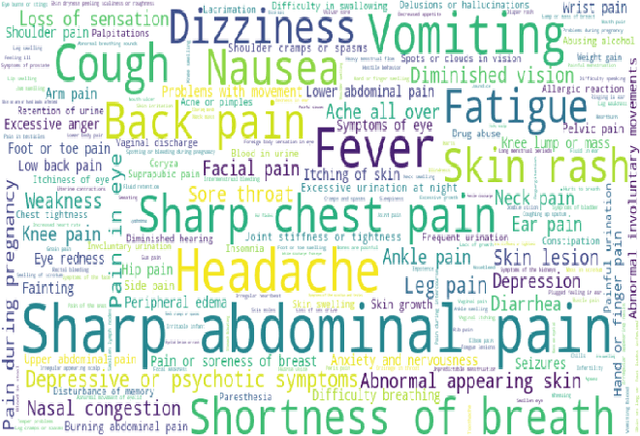
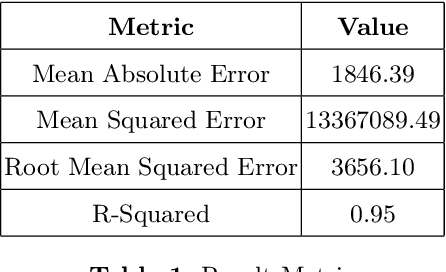
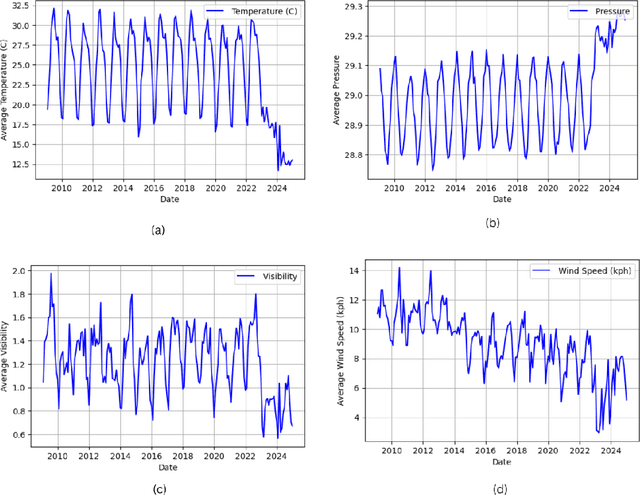
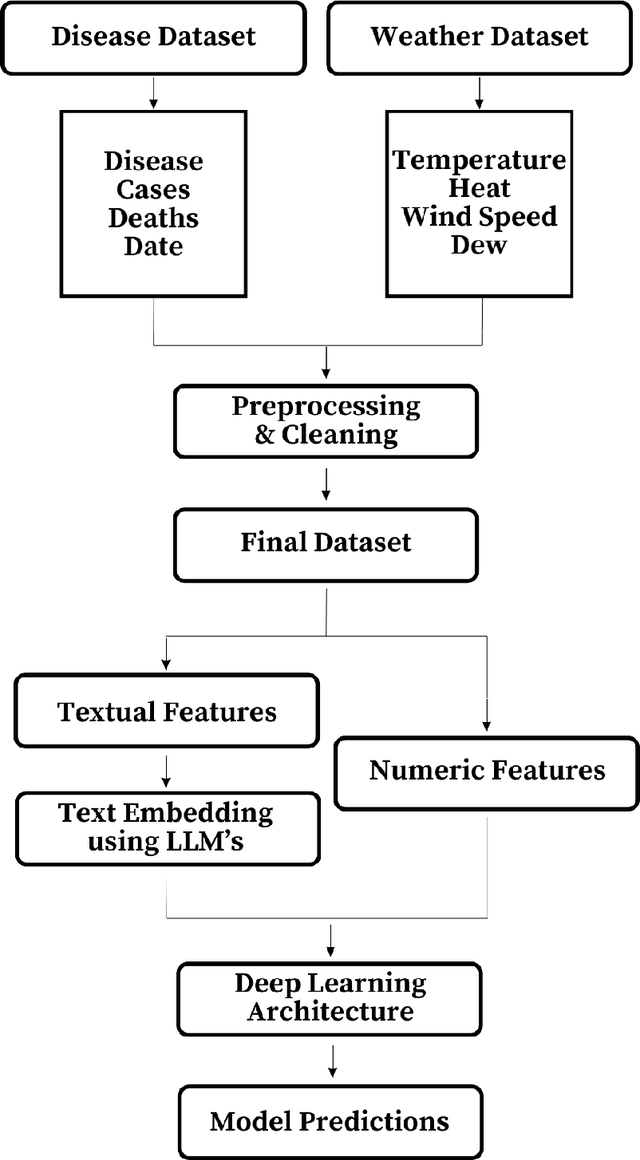
Abstract:Many uncontrollable disease outbreaks of the past exposed several vulnerabilities in the healthcare systems worldwide. While advancements in technology assisted in the rapid creation of the vaccinations, there needs to be a pressing focus on the prevention and prediction of such massive outbreaks. Early detection and intervention of an outbreak can drastically reduce its impact on public health while also making the healthcare system more resilient. The complexity of disease transmission dynamics, influence of various directly and indirectly related factors and limitations of traditional approaches are the main bottlenecks in taking preventive actions. Specifically, this paper implements deep learning algorithms and LLM's to predict the severity of infectious disease outbreaks. Utilizing the historic data of several diseases that have spread in India and the climatic data spanning the past decade, the insights from our research aim to assist in creating a robust predictive system for any outbreaks in the future.
Cyberbullying or just Sarcasm? Unmasking Coordinated Networks on Reddit
Oct 26, 2024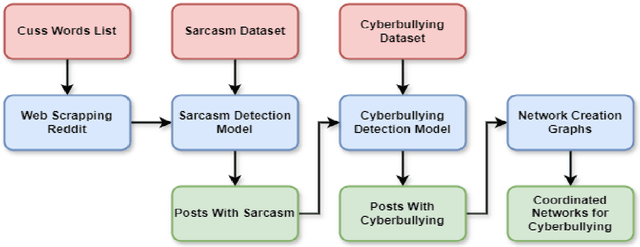


Abstract:With the rapid growth of social media usage, a common trend has emerged where users often make sarcastic comments on posts. While sarcasm can sometimes be harmless, it can blur the line with cyberbullying, especially when used in negative or harmful contexts. This growing issue has been exacerbated by the anonymity and vast reach of the internet, making cyberbullying a significant concern on platforms like Reddit. Our research focuses on distinguishing cyberbullying from sarcasm, particularly where online language nuances make it difficult to discern harmful intent. This study proposes a framework using natural language processing (NLP) and machine learning to differentiate between the two, addressing the limitations of traditional sentiment analysis in detecting nuanced behaviors. By analyzing a custom dataset scraped from Reddit, we achieved a 95.15% accuracy in distinguishing harmful content from sarcasm. Our findings also reveal that teenagers and minority groups are particularly vulnerable to cyberbullying. Additionally, our research uncovers coordinated graphs of groups involved in cyberbullying, identifying common patterns in their behavior. This research contributes to improving detection capabilities for safer online communities.
 Add to Chrome
Add to Chrome Add to Firefox
Add to Firefox Add to Edge
Add to Edge